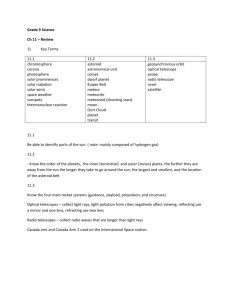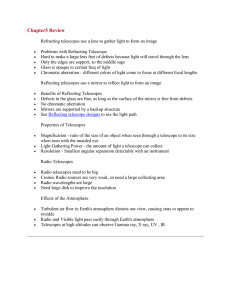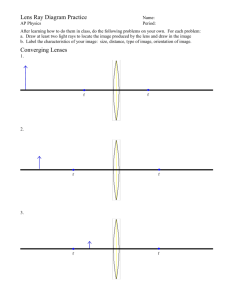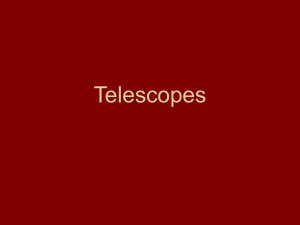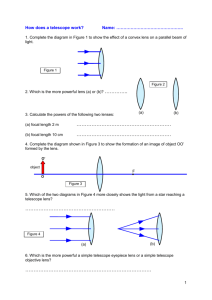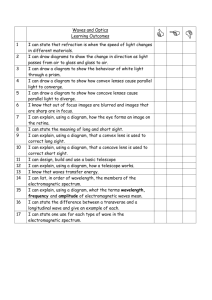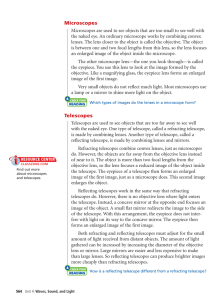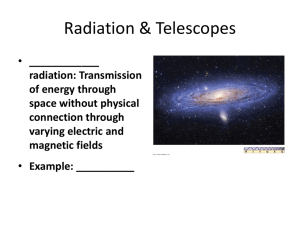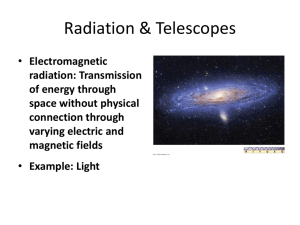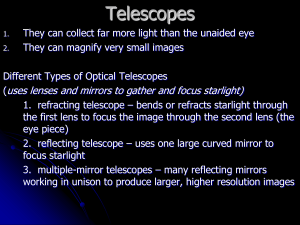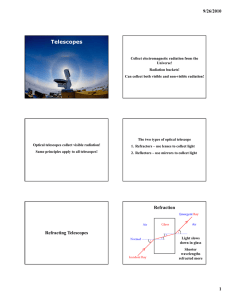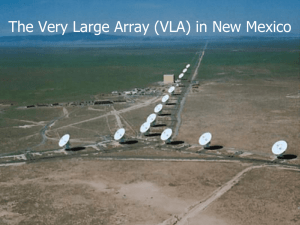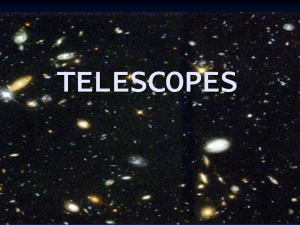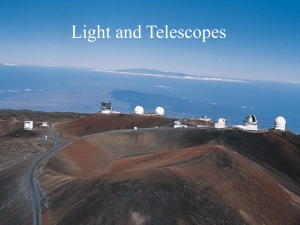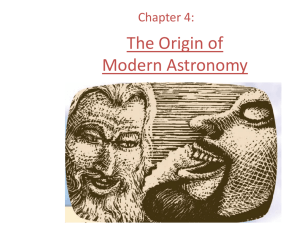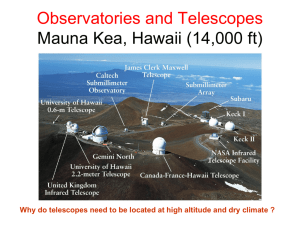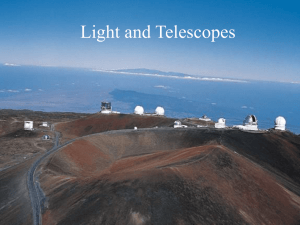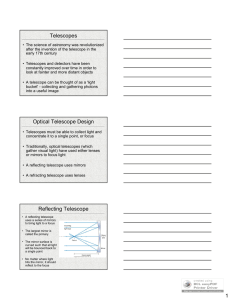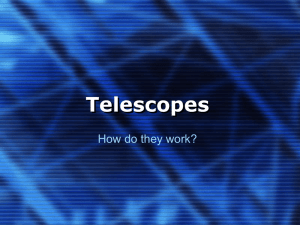Telescopes ppt3
advertisement
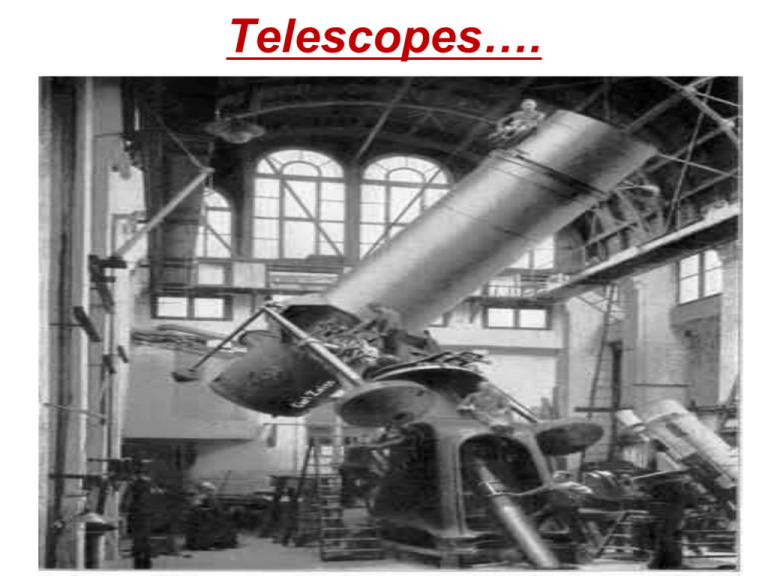
Telescopes…. Telescopes are helpful to astronomers because they…. • Collect more light • Separate distant objects…. • Magnify the image • Detect other wavelengths… Telescopes and Domes Optical Telescopes; * use lenses and mirrors to gather and focus starlight. * the light gathering power depends on the area of the lens or mirror. There are 2 types of optical telescopes……….. Refracting… • Has two lenses.. • Uses large objective lens to gather and focus light. • Most in use today are almost 100 years old. Reflecting telescope… • Uses one large curved mirror to gather and focus starlight. MMT multiple-mirror telescope • This telescope has several mirrors that take the place of one mirror.. • Spectroscope: separates starlight into colors. 3 kinds of visible spectrum… • Continuous – unbroken band of colors. Source is sending out energy of all wavelengths. • Bright line – Source is sending out only certain wavelengths of energy. (also called emission spectra) • Dark-line – continuous spectrum with dark lines. Helps identify composition. Radio Telescope • Collects radio waves and feeds them to a receiver, where they are changed into electrical signals. • What are some advantages that a radio telescope has over an optical??????? Lenses…… • It is a transparent material that bends or refracts light. 2 main types of lenses; • Convex: thick in the middle. Bending light inward. Amount of refraction depends on how curved the lens is. • Concaved: thin in the middle. Bends light away from the lens. (spreads apart) Top: a convex lens converges light rays Bottom: a concave lens diverges light rays Images • Real image: one that can be projected onto a screen. The image is upside down.. • Virtual image: when an object is placed between a convex lens and its focal point producing a larger and upright. i.e… (magnifying glass) Space Telescopes • The Hubble Telescope was designed to take pictures of the whole universe. • What major advantage does the Hubble have over ground based telescopes????? Pictures from the Hubble Space Telescope Doppler Shift (effect) • Sometimes the black lines in a star’s spectrum are shifted to the Red or Blue end of the spectrum. • These shifts occur because of a change in the distance between the star and Earth. • When the distance increases (moving away) = shifted toward the longer wavelength (RED). • When the distance decreases (moving closer) = shifted toward the shorter wavelength (BLUE).
